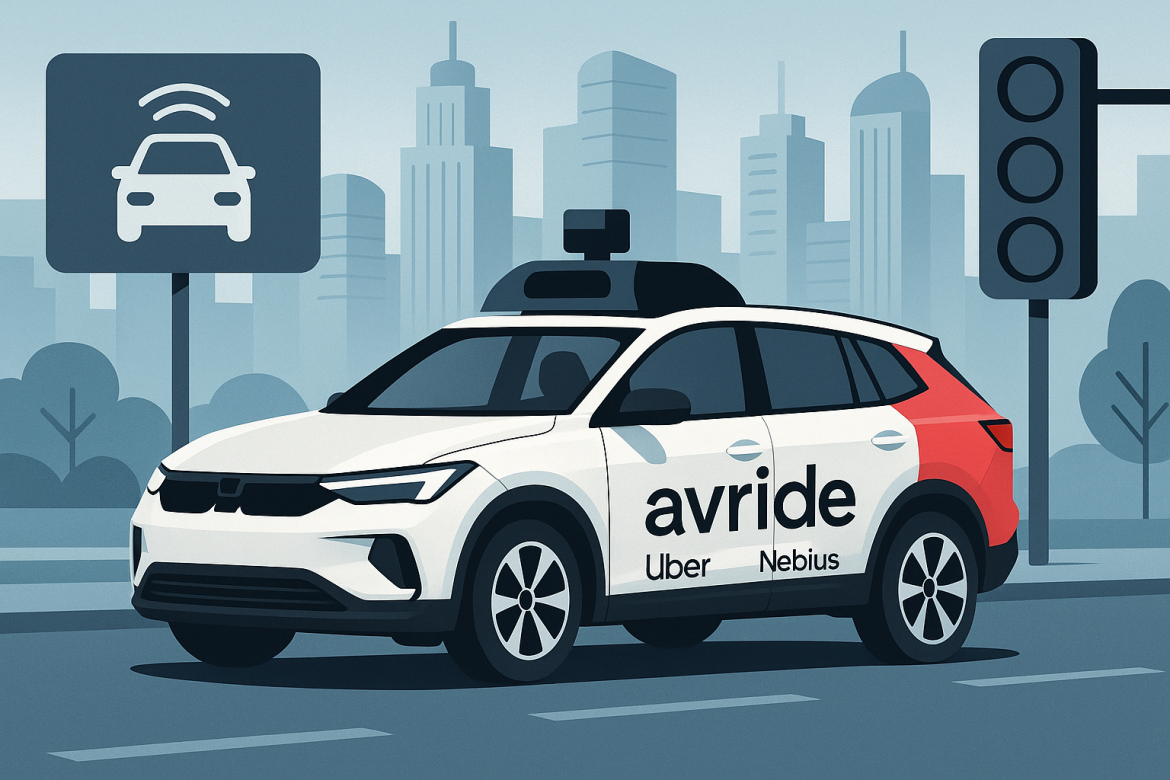Autonomous mobility is entering a new phase as Uber Technologies and Nebius Group commit up to $375 million to fund Avride, Nebius’ autonomous vehicle subsidiary.
The deal, which includes both strategic investment and commercial commitments, positions Avride as a key player in expanding driverless ride-hailing and delivery solutions worldwide.
It also signals Uber’s deepening role in the global self-driving ecosystem, as the company continues to build partnerships instead of owning the technology outright.
Funding to accelerate Avride’s driverless expansion
Avride confirmed that the fresh funding will support the scaling of its autonomous vehicle fleet to as many as 500 cars, alongside the continued rollout of delivery robots.
The company stated that both Uber and Nebius may inject additional capital if performance milestones are met, potentially bringing the total funding to the full $375 million.
The investment, structured as a convertible note, gives Uber the option to convert its contribution into equity at a later stage. Despite this, Avride will remain a wholly owned subsidiary of Nebius, the Dutch cloud infrastructure company.
The new capital will also drive Avride’s research, product development, and market expansion into new territories.
This deal marks Uber’s first external investment in Avride, extending an existing multi-year collaboration between the two companies.
Their partnership already spans the deployment of autonomous delivery robots in Jersey City, Austin, and Dallas, and will soon include driverless Hyundai Ioniq 5 vehicles integrated with Avride’s technology for commercial use in Dallas by the end of 2025.
Uber deepens its autonomous ecosystem partnerships
Since selling its in-house self-driving unit in 2020, Uber has opted for a partnership-driven approach, investing in or collaborating with several leading firms in the space — including WeRide, Pony AI, Lucid Group, Nuro, and Flytrex.
These alliances allow Uber to diversify across hardware and software players while maintaining flexibility over future integration.
By working with Avride, Uber expands this network to include another advanced player in the robotaxi and delivery automation market, positioning itself as an aggregator of autonomous mobility options rather than a single-brand operator.
The strategy enables Uber to balance capital exposure while continuing to integrate emerging technologies directly into its core platform for rides and food delivery.
Nebius’ global strategy and post-Yandex evolution
Nebius, which owns Avride, emerged as an independent company following the corporate restructuring of Russian tech giant Yandex.
Its founder, Arkady Volozh, left Yandex after being sanctioned by the European Union in 2022 amid Russia’s invasion of Ukraine.
Following his exit, Yandex’s Russian operations were sold to a group of investors, while the remaining non-Russian assets were rebranded as Nebius and headquartered in Amsterdam.
Nebius retained control of Yandex’s former self-driving technology, re-establishing it under the Avride name.
With Brussels now removing Volozh from its sanctions list, Nebius is focused on expanding its AI-driven infrastructure and mobility divisions internationally.
The Avride partnership with Uber represents a key step in this strategy, integrating Nebius’ autonomous technology into global consumer platforms.
The global race for commercial driverless services
The Uber-Nebius-Avride alliance comes as the autonomous mobility market becomes increasingly competitive.
Companies such as Alphabet’s Waymo and Tesla are scaling their own fleets, while Cruise LLC and WeRide continue testing in multiple cities.
For Avride, access to Uber’s vast logistics and user base offers a commercial springboard to bring driverless rides and robotic deliveries into everyday use.
If successful, Avride’s rollout of 500 vehicles will mark one of the largest autonomous deployments linked to a ride-hailing app.
For Uber, the integration of driverless technology into its existing service ecosystem could help reduce operational costs, expand service availability, and future-proof its business against shifting labour dynamics.
As both firms push forward, the coming year will test how effectively Avride’s systems can operate at scale across varied city environments, and whether Uber’s hybrid model of human-driven and driverless rides can win consumer confidence.
The post Uber joins Nebius in $375M push to deploy 500 Avride driverless cars, delivery robots appeared first on Invezz

